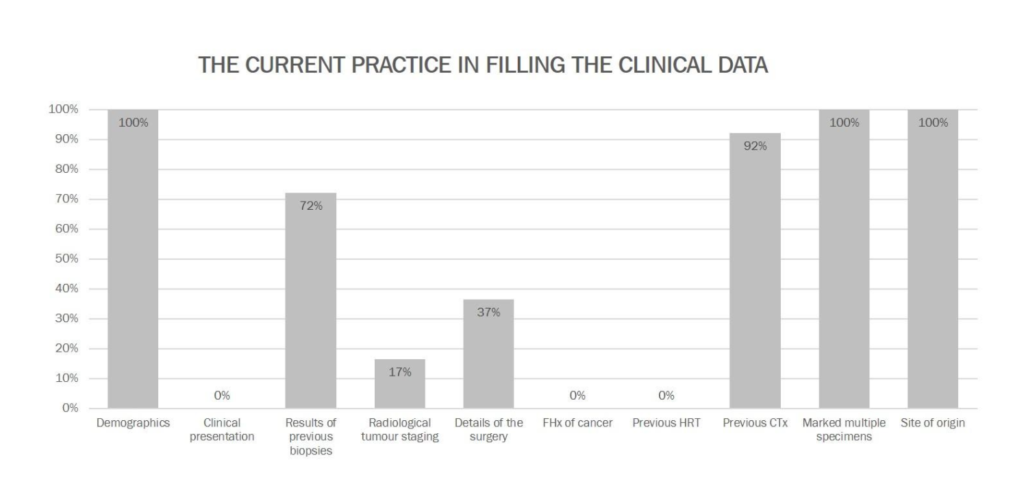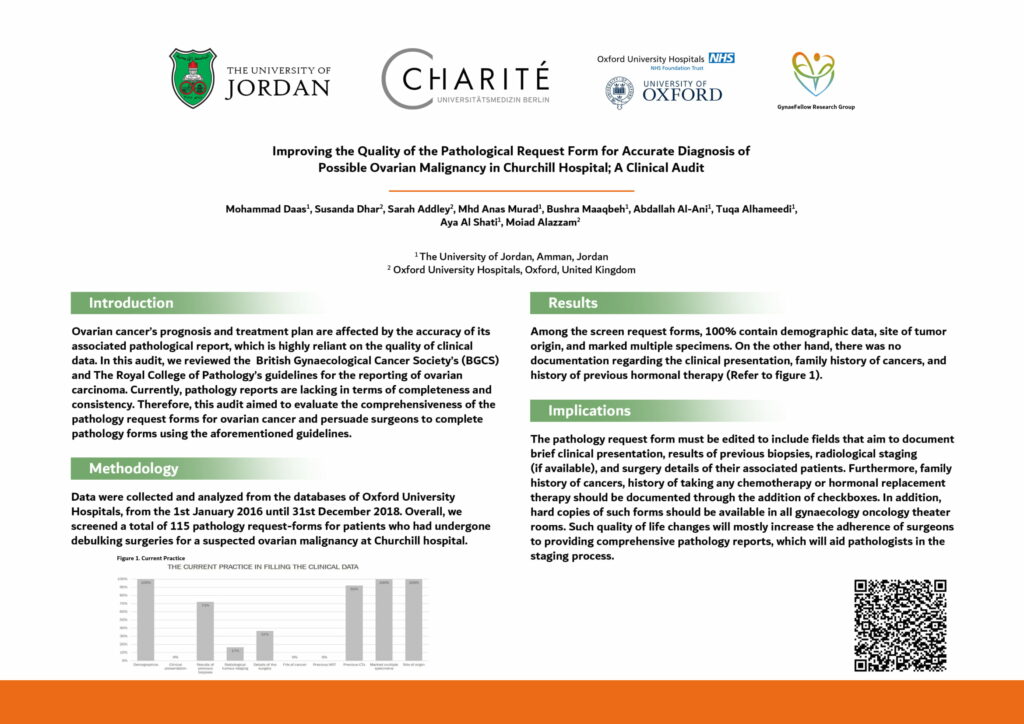Improving the Quality of the Pathological Request Form for Accurate Diagnosis of Possible Ovarian Malignancy in Churchill Hospital; A Clinical Audit
Authors:
Mohammad Daas1, Sunanda Dhar2, Sarah Addley2, Mhd Anas Murad1, Bushra Maaqbeh1, Abdallah Al-Ani1, Tuqa Alhameedi1, Aya Al shati1, Moiad Alazzam2
Affiliations:
1 The University of Jordan, Amman, Jordan
2 Oxford University Hospitals, Oxford, United Kingdom
INTRODUCTION
Ovarian cancer’s prognosis and treatment plan are affected by the accuracy of its associated pathological report, which is highly reliant on the quality of clinical data. In this audit, we reviewed the British Gynaecological Cancer Society’s (BGCS) and The Royal College of Pathology’s guidelines for the reporting of ovarian carcinoma. Currently, pathology reports are lacking in terms of completeness and consistency. Therefore, this audit aimed to evaluate the comprehensiveness of the pathology request forms for ovarian cancer and persuade surgeons to complete pathology forms using the aforementioned guidelines.
METHODS
Data were collected and analyzed from the databases of Oxford University Hospitals, from the 1st January 2016 until 31st December 2018. Overall, we screened a total of 115 pathology request-forms for patients who had undergone debulking surgeries for a suspected ovarian malignancy at Churchill hospital.
RESULTS
Among the screen request forms, 100% contain demographic data, site of tumor origin, and marked multiple specimens. On the other hand, there was no documentation regarding the clinical presentation, family history of cancers, and history of previous hormonal therapy (Refer to figure 1).
IMPLICATIONS
The pathology request form must be edited to include fields that aim to document brief clinical presentation, results of previous biopsies, radiological staging (if available), and surgery details of their associated patients. Furthermore, family history of cancers, history of taking any chemotherapy or hormonal replacement therapy should be documented through the addition of checkboxes. In addition, hard copies of such forms should be available in all gynaecology oncology theater rooms. Such quality of life changes will mostly increase the adherence of surgeons to providing comprehensive pathology reports, which will aid pathologists in the staging process.


